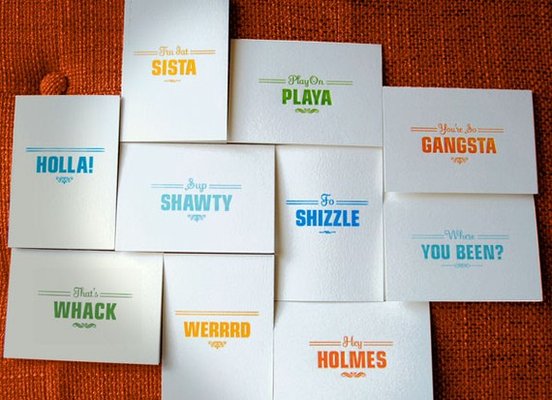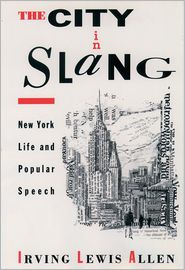DWBH -- Cause, well, YOLO
 Do you wear black lipstick and only drink black coffee? (Cause, in case you haven’t heard, milk is passé, as evidenced by this hilarious coffee snob parody.) In other words, are you hip and trendy? And I’m not just talking about your clothes – I’m also talking about your speech patterns. Like fashion, language is another outlet to self-present and demonstrate relevancy.
Do you wear black lipstick and only drink black coffee? (Cause, in case you haven’t heard, milk is passé, as evidenced by this hilarious coffee snob parody.) In other words, are you hip and trendy? And I’m not just talking about your clothes – I’m also talking about your speech patterns. Like fashion, language is another outlet to self-present and demonstrate relevancy.
Communication is both verbal and visual. Ferdinand de Saussure, considered one of the fathers of modern linguistics, provides an interesting semiotic framework that can be applied to dress and language alike. [Stay with me here…]:
For de Saussure, every sign has 2 components: 1) The speech act (la parole) and 2) the entire system of language (la langue). Think of la parole as your personal flair (i.e. the vernacular you adopt, the trends you embrace) and la langue as the group norm (i.e. your office dress code, the pop culture zeitgeist). Language, like dress, comes in different styles, brands, and regional patterns (la langue) – and particular individuals can elevate these particular choices (la parole) into a wide-scale trend.
Where do these trends come from? According to the New York Times, “girls and women in their teens and 20s deserve credit for pioneering vocal trends and popular slang…young women use these embellishments in much more sophisticated ways than people tend to realize.” Although this is a valid point (we saw OMG blow up from Gossip Girl and vocal fry spread from the Kardashians), women are not the only people pioneering linguistic trends.
The rapper Drake popularized the (now has-been) term “YOLO” (an acronym for “you only live once,” for anyone who managed to completely avoid that unfortunate linguistic meme) making it clear that men – and especially performing artists – have a role in constructing and disseminating “fashionable” language.
Looking closely at the lifecycle of YOLO (and LOL and OMG), it is also clear that, like fashion, language trends heavily correlate with place and time. YOLO had its moment. Then your parents learned about it. Now, according to the Huffington Post, “the phrase officially isn’t cool anymore. In fact, it’s so uncool that hipsters everywhere are adopting the phrase.” And, as with clothing, hipster adoption/ironic usage is the penultimate stop in the life-cycle of a trend. (Final stop: obsolescence – at least until enough time has passed and it’s resurrected in a new context in a same-but-different way.)
Want to keep in-the-know, but avoid making the linguistic equivalent of contemporary style mistakes? Follow these guidelines:
 Hear a word you don’t recognize, but are too worried about compromising your cool rep to ask what it means? Stay up-to-date with the Urban Dictionary App.
Hear a word you don’t recognize, but are too worried about compromising your cool rep to ask what it means? Stay up-to-date with the Urban Dictionary App. Know your audience. Don’t try to fake a southern accent, but do try to brush up on regional slang before traveling.
Know your audience. Don’t try to fake a southern accent, but do try to brush up on regional slang before traveling. LMAO SMH TMI LYL. Does this (and the title of this article) seem more inscrutable than the Da Vinci Code? Use the Text Decoder app to figure out what this and other popular abbreviations mean – and maybe you won’t need that black lipstick to establish street-cred anymore.
LMAO SMH TMI LYL. Does this (and the title of this article) seem more inscrutable than the Da Vinci Code? Use the Text Decoder app to figure out what this and other popular abbreviations mean – and maybe you won’t need that black lipstick to establish street-cred anymore.